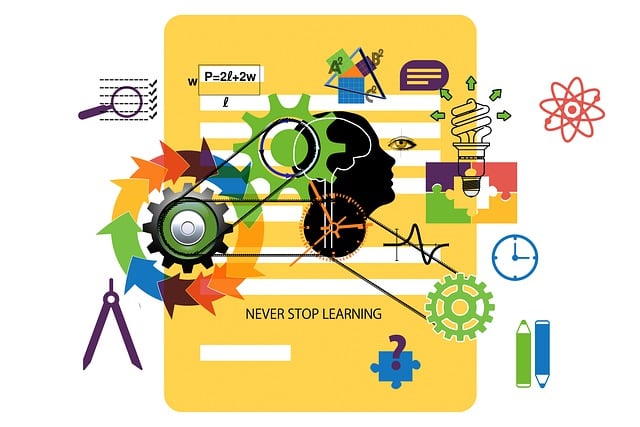In Karachi, standardized testing dominates academic evaluation but reveals systemic inequalities, digital divide, and lack of cultural inclusivity. These tests fail to capture diverse learning styles and skills, hindering inclusive education. Alternative assessment methods like project-based learning and portfolio evaluations are needed to promote equal opportunities, critical thinking, and real-world skill development. Case studies show successful shifts towards contextualized assessments improving student engagement, retention, and academic outcomes in Karachi's diverse educational landscape. Moving beyond traditional testing is crucial for future education in vibrant cities like Karachi.
In Karachi, as in many urban centers globally, standardized testing has long been the cornerstone of educational assessment. However, concerns over its fairness, effectiveness, and ability to cater to diverse learning styles have prompted a reevaluation. This article delves into the current state of standardized testing in Karachi, uncovering challenges and limitations that highlight disparities in education. We explore alternative assessment methods, present successful case studies, and offer recommendations for shaping a more inclusive and effective educational system in Karachi and beyond.
- The Current State of Standardized Testing in Karachi: A Snapshot
- Challenges and Limitations: Uncovering Disparities in Education
- Alternative Assessment Methods: Exploring Innovative Solutions
- Case Studies: Successful Reevaluation Strategies in Action
- Shaping the Future: Recommendations for Enhanced Educational Systems
The Current State of Standardized Testing in Karachi: A Snapshot

In Karachi, as across many urban centers, standardized testing currently serves as a cornerstone of academic evaluation and student progression. These high-stakes assessments, designed to measure knowledge and skill levels, dominate educational landscapes in schools and universities alike. Students often view them as pivotal for gaining admission into competitive programs or securing favorable job prospects. While the intent behind standardized tests is noble—ensuring quality education and fostering meritocracy—their current implementation in Karachi presents a complex picture.
The reality on the ground reveals disparities in access to test preparation resources, highlighting systemic inequalities. Students from privileged backgrounds often have better support systems and additional tutoring, giving them an advantage over their peers from less resourced communities. Moreover, concerns about question paper leaks and unfair practices cast shadows of doubt on the integrity of these tests. Such challenges necessitate a reevaluation of standardized testing’s role in Karachi’s educational system, encouraging a shift towards more holistic evaluation methods that address inherent biases and promote equal opportunities for all students.
Challenges and Limitations: Uncovering Disparities in Education

Standardized testing, while aiming to provide a fair assessment of students’ abilities, often fails to account for systemic disparities within education. In cities like Karachi, where diverse socio-economic backgrounds coexist, these tests can inadvertently highlight and perpetuate existing inequalities. One significant challenge lies in ensuring equal access to quality educational resources across different neighborhoods. The digital divide, a pressing issue in many urban areas, including Karachi, further complicates matters; students from disadvantaged backgrounds may lack the necessary technological tools or internet connectivity to prepare effectively for standardized exams.
Moreover, these tests often fail to recognize and value diverse learning styles and cultural knowledge. In a city as culturally rich and heterogeneous as Karachi, a one-size-fits-all approach can undermine the unique strengths and contributions of various communities. By prioritizing standardized testing, we risk reducing education to a series of numbers and scores, ignoring the complex interplay of social, economic, and cultural factors that shape learning outcomes. This limited perspective may hinder our ability to address deep-rooted educational disparities and foster an inclusive learning environment in Karachi and beyond.
Alternative Assessment Methods: Exploring Innovative Solutions

In the dynamic educational landscape of Karachi, the quest for innovative assessment methods is a pressing need. Traditional standardized testing, while widely adopted, often falls short in gauging a student’s true potential, especially in diverse learning environments. This prompts us to explore alternative assessment strategies that can offer a more nuanced and comprehensive evaluation of students’ skills and knowledge.
Innovative solutions like project-based assessments, performance tasks, and portfolio evaluations provide opportunities for students to demonstrate their abilities through authentic and creative expressions. These methods encourage critical thinking, problem-solving, and collaboration—skills essential in the rapidly evolving world. By adopting such alternative assessment techniques, Karachi’s educational institutions can foster a more holistic learning environment, better prepare students for real-world challenges, and ultimately enhance the overall quality of education.
Case Studies: Successful Reevaluation Strategies in Action

In cities like Karachi, where educational systems are vast and diverse, the reevaluation of standardized testing has shown promising results. Case studies have revealed innovative strategies that have effectively addressed the limitations of traditional assessment methods. One successful approach involves implementing alternative assessment techniques, such as portfolio assessments and project-based learning, which allow students to demonstrate their skills and knowledge in more authentic ways. This shift has been particularly beneficial for diverse learner profiles, fostering a more inclusive educational environment.
For instance, schools in Karachi have introduced contextualized assessments that align with real-world scenarios, mirroring the challenges and opportunities students might encounter beyond the classroom. These methods not only enhance learning but also prepare students for future careers by encouraging critical thinking, creativity, and problem-solving skills. By moving away from rigid, one-size-fits-all testing, educational institutions in Karachi are witnessing improved student engagement, higher retention rates, and better overall academic outcomes.
Shaping the Future: Recommendations for Enhanced Educational Systems

In shaping the future of education, especially in vibrant urban centers like Karachi, it’s crucial to move beyond traditional standardized testing methods. The current system, while well-intentioned, often fails to capture the diverse learning outcomes and unique potential of every student. To enhance educational systems in Karachi and across Pakistan, policymakers and educators should consider a shift towards more holistic assessment strategies that encourage creativity, critical thinking, and problem-solving skills.
This could involve implementing performance-based assessments, project-based learning, and portfolio evaluations that better reflect real-world applications of knowledge. By fostering an environment that promotes deep understanding and experiential learning, Karachi’s educational institutions can prepare students for the complexities of the 21st century, ensuring they are equipped with the skills needed to thrive in a rapidly evolving global landscape.
The reevaluation of standardized testing is a vital step towards fostering more equitable and effective educational systems, particularly in bustling metropolitan areas like Karachi. By acknowledging the challenges and limitations of current practices, we can pave the way for alternative assessment methods that cater to diverse learning needs. The case studies presented offer compelling examples of successful strategies, providing a roadmap for educational stakeholders to navigate this transformation. Moving forward, implementing these recommendations will help create an enhanced educational landscape in Karachi, ensuring every student receives a fair and meaningful evaluation.
